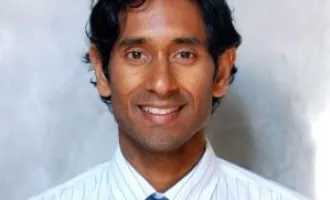
Photo by Muhmed Alaa El-Bank on Unsplash
Silent But Not Alone: Enduring A Hostile Academic Culture
Four years ago, I sat among clamoring classmates at graduation, silently reflecting on my college experience and how unhappy I had been. Up to this point of the ceremony, we had all sat quietly but anxiously awaiting the celebrations afterward.
We were granted a brief respite by one of the speakers and asked to take a few minutes to tell our neighbors what college had meant to us. What had we learned in our time here? What invaluable lessons would we carry with us for the rest of our lives?
My former friends seated beside me were engaged in animated conversation, and after I was ignored following a couple of attempts to join their discussion, it became clear there was no space for me. And so, I sat alone, reflecting on the irony of the situation — I felt I had so much to say but nobody to talk to.
Attending college had meant more to me than I could put into words. It meant escaping an abusive family who had refused to provide for me. It meant leaving behind a violent community plagued by poverty and violence. It meant defying what my family and teachers had told me as a child: that I was stupid, worthless, and incapable of ever achieving anything.
When I applied to college, I was told I wouldn’t get in. Once I was accepted, I was told I would fail and drop out. And once I graduated, nobody was there to celebrate my success. I graduated alone that day.
Despite the harshness of my upbringing, college had been just as brutal in its own ways. Aside from the impossibly demanding academics, I had felt overwhelmingly alone, unable to meaningfully connect with my classmates.
I struggled to relate to their experiences of traveling the world, having the resources and support to pursue their interests, feeling safe in their community. Having a home to return to every day. Having enough to eat. Believing they had a future.
In stark contrast, I had grown up primarily concerned with basic survival. I lived in filth in a house overrun with pests. I went hungry while the adults in my life wasted money on alcohol. I struggled in school because I needed glasses that nobody cared enough to provide.
Aside from dramatic stories of being evicted, being shot at, and an acquaintance being convicted of murder, what interesting life experiences could I share with my college classmates? What had I learned from all this?
Despite everything, from my experiences I learned independence, resilience, and resourcefulness, but I felt incapable of drawing upon these traits throughout college.
I wondered if I had burned out, or if I truly lacked these qualities and had just been spectacularly lucky to end up in college.
Or maybe, I wondered, these experiences and traits in their current form weren’t valued in this affluent, academic environment. Maybe I had been unsuccessful in translating my strengths to such an unfamiliar context.
In my first week of college, a discussion was held in my dorm centered on what gives our lives meaning. I was excited to hear a diversity of perspectives from my dormmates, but instead one unanimous view immediately pervaded the room: life is meaningless.
We’re all going to die one day, so how could anything matter. I found myself unequipped to engage with this argument, not because I hadn’t ever considered it, but because I was unable to translate my views into terms other students found compelling.
That previous winter, I had experienced an existential crisis. After submitting my college applications, I was convinced I had wasted my time. Throughout my whole life, one message had been consistently reiterated to me: smart people go to college, and I’m not one of them.
So why had I even bothered applying? The reality was that I applied out of desperation. The two other paths I had considered — enlisting in the military and working unskilled labor — were also unattainable because of my respiratory issues and my inability to procure my vital documents.
In the intervening months while I waited for rejection letters, I felt resigned to my fate. I had no clear future. My deteriorating relationship with my family guaranteed I would be without a home or any support. And in my community afflicted with gun violence, I anticipated a short lifespan.
I began asking myself what had mattered in my life? I refused to accept my life had no meaning; I and others had valued our time together. I had valued the few chances I had to be curious and learn new things. My life had meaning because I believed it did.
Restating my very simple view in the framework adopted by my college dormmates: if life is truly meaningless, then can’t we just arbitrarily assign our own meaning to anything? And don’t we do that implicitly by choosing to live?
Unfortunately, I lacked the vocabulary to articulate this idea to the handful of vocal students. And perhaps even more unfortunate, it became clear that some students had been disingenuous. They took joy in being overzealously contrarian and provocative, in controlling discussions and flippantly dismissing ideas they didn’t value.
My tendency to be earnest, diplomatic, and patient — my attempt to differentiate myself from my family — was generally not valued, especially in the physics department where I majored.
I felt alienated during conversations with physics students as I sat silently, uncomfortably out of place as I struggled to process the fast, spiteful, and flashy rhetoric that characterized their interactions.
In the few instances I did speak, I could see the visible annoyance on other students’ faces as I slowly articulated my thoughts. I was always cut off and interrupted.
In my coursework, the traits I valued most in myself were misconstrued in harsh terms. All that mattered to my professors and classmates were end results, but my strengths best supported careful diligence instead. The ridiculous hours I devoted to problem sets were seen as proof that I was stupid.
My preference for self-studying showed I was incapable of the effortless perfection my classmates espoused. My broad interest in the humanities and other areas of science meant I wasn’t dedicated enough to be a physicist. I remained in the department anyway, but it wasn’t until my third year that I finally accepted I couldn’t relate to my classmates.
We had recently finished a brutal course with a professor who openly mocked us and took joy in assigning homework that consumed our weekends and holidays. He refused to answer simple questions and became angry when students voiced their inability to read his handwriting.
During one incomprehensible lecture that elicited too many questions, he ranted that colleges are too focused on pampering their worthless undergrads. I walked out of the lecture shortly after.
Later that year, my classmates were discussing this professor, and one student put forth his take which garnered seemingly unanimous consensus: he was the best professor because he was the only one who respected the students’ intelligence. I couldn’t believe this view resonated with the others.
This professor made so many snide remarks, took such mean-spirited joy in our suffering, and stated outright in his rant that undergrads were just simple-minded brats. How could that be interpreted as respect?
I wanted to complain about this professor, but by this point I had learned my physics department did not acknowledge arguments based on morality. There wasn’t a culture of advocacy in physics, and one isolated complaint just meant there was one student who couldn’t handle the stress of the department. It meant I just wasn’t good enough to meet their standards. It meant, to me at least, that the culture would never change.
After fulfilling the requirements for my degree, I left physics for good.
Despite everything, I had persisted, and I was now sitting at commencement in a gown and cap. What had I learned? That academic culture can be unwelcoming to marginalized groups. That college can be a path to upward mobility but is still deeply unfair. That I was good enough for college after all.
But there was another important lesson for me to learn in this final moment sitting alone at graduation. I looked around and saw other students also sitting quietly, staring ahead while their neighbors talked.
I recalled my first-year discussion about what gives life meaning and remembered that a few students had sat silently while others talked. I reflected on my physics classes and interactions with classmates, and I remembered the faces of students who never spoke and quietly disappeared from class one day, presumably having left the department. I realized that in these moments when I felt isolated from the dominant conversation, there were other students probably feeling the same as I did.
And finally, here on graduation day, even though I had no friends or family there to support me, there were probably other students like me. Today, I wasn’t graduating alone.


